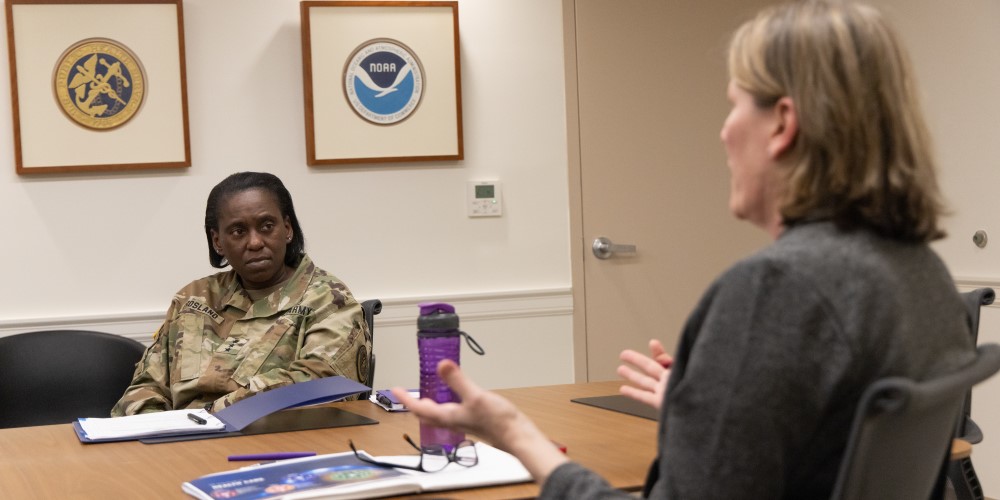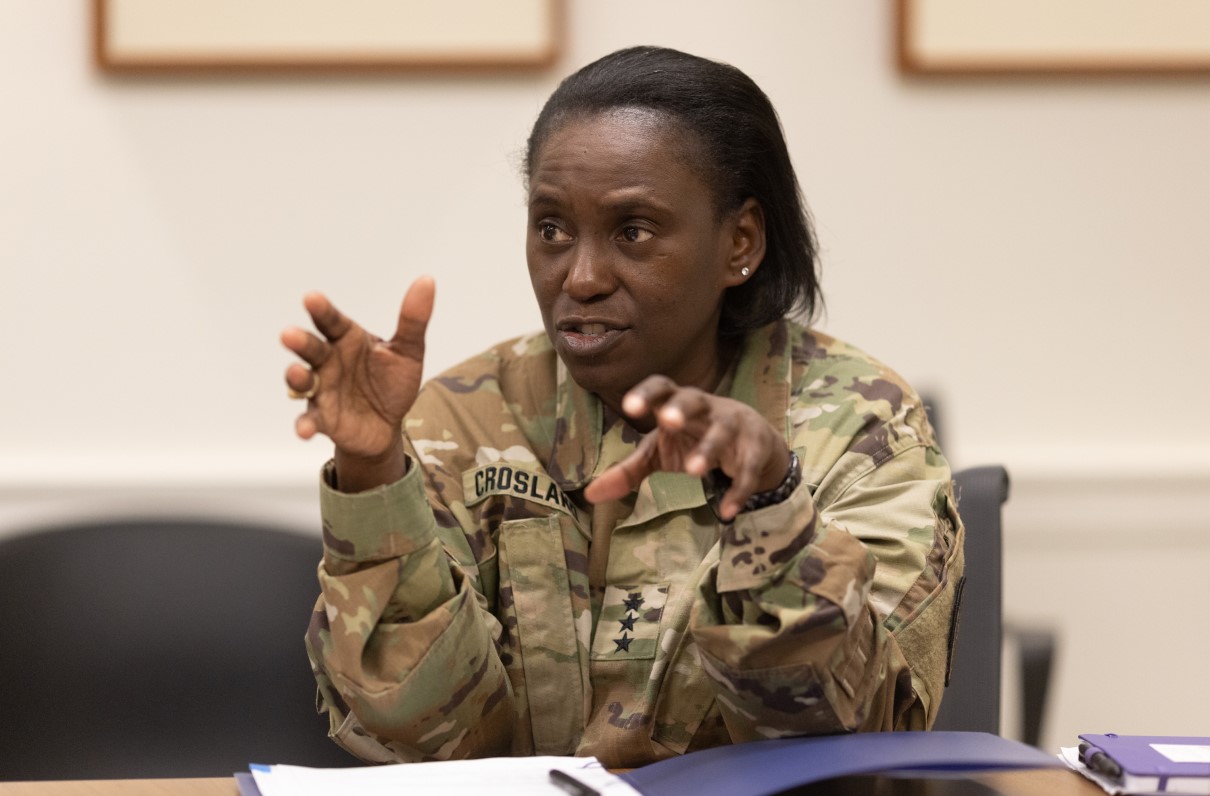The new director of the Defense Health Agency (DHA) visited MOAA’s headquarters in Alexandria, Va., on Jan. 31 to meet our team and discuss her mission, vision, and priorities for DHA.
Lt. Gen. Telita Crosland, a graduate of the U.S. Military Academy at West Point, N.Y., and the Uniformed Services University of the Health Sciences, is a family physician. She most recently served as the Army Deputy Surgeon General and Deputy Commanding General (Operations) of U.S. Army Medical Command (MEDCOM) and became DHA’s fourth director on Jan 3.
DHA’s priorities include building on the explosion in telehealth that occurred as a result of the pandemic.
“When you look at medicine today,” Crosland said, “everyone is struggling with embracing technology in an innovative way that makes people healthier.” As DHA seeks to modernize the military health system, the agency will look to leverage technology to meet patient needs and help the military health system run more efficiently.

Lt. Gen. Telita Crosland, USA, left, speaks with MOAA Director of Government Relations for Health Affairs Karen Ruedisueli during a Jan. 31 visit to MOAA's headquarters in Alexandria, Va.
Crosland also highlighted workforce shortages across the civilian health care system.
“There are shortages of nurses,” Crosland pointed out. “Our health care model is heavily rooted in nurses, heavily. As a family doc, there is nothing that I can think of that doesn’t start and often end with a registered nurse – from how you come into the system to what we do to help you transition.”
The MHS is not immune to clinical shortages, Crosland noted, and will have to innovate to address workforce challenges.
[TAKE ACTION: Help MOAA Fight Cuts to the TRICARE Pharmacy Network]
MOAA’s government relations team shared our priorities for the 118th Congress, including feedback from MOAA members about TRICARE pharmacy network cuts. We emphasized TRICARE access standards, focused only on drive time to the nearest network pharmacy, do not adequately capture the barriers faced by elderly and medically complex patients after losing access to pharmacies that offer specialized services, limited distribution drugs, or niche locations (e.g., hospital lobbies or other medical provider settings). We urged the general to address the gaps in network composition and capabilities by reversing reductions in pharmacy access standards.
We also renewed our call for an MHS-wide problem reporting system and passed along related feedback on access challenges and service degradation at military treatment facilities (MTFs), including the flagship Walter Reed National Military Medical Center, and the lack of support for patients moved to the civilian network for care. Given the magnitude of change occurring in the direct care system, patients must have a reliable way to report problems and seek assistance with access to care challenges. Such a system would also provide DHA with visibility to systemic problems.
We appreciate Crosland’s outreach and DHA’s ongoing efforts to maintain a dialog with MOAA and other military and veterans service organizations. We look forward to working together to ensure the quality health care our servicemembers, retirees, their families, and survivors have earned.
More Members Mean More Influence Over Our Health Care
Get involved and make sure your interests are addressed. Because the larger our voice is, the greater our impact will be.

